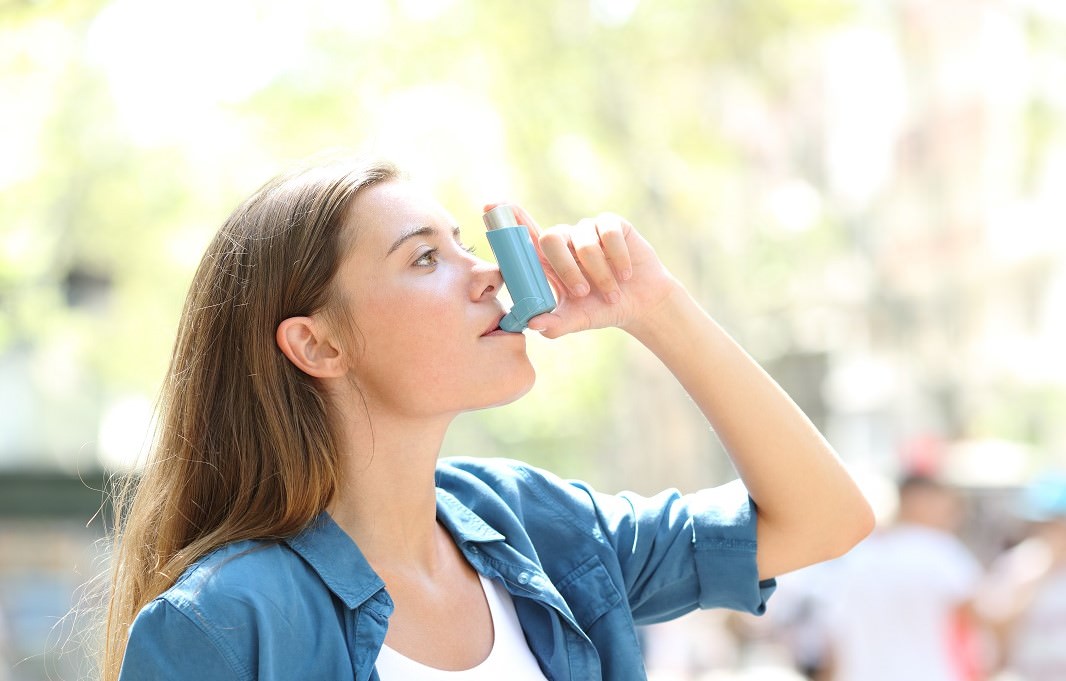
If you need an inhaler, the chances are good you think about that little device pretty often — making sure you have it when you head to the gym or out in nature, making sure you have a replacement canister when the number of remaining puffs gets low. And if you’re an environmentalist, you might think about how to properly dispose of the box of empties in your garage.
The well-known metered-dose inhalers rely on propellants. Until the Montreal Protocol, those propellants were chlorofluorocarbons. CFCs have long since been replaced by hydrofluoroalkanes, which are still greenhouse gases but are far less damaging than CFCs.
The dry powder inhaler and soft mist inhaler types are greener choices, but only if they are appropriate for your condition. Ten Americans die every day from asthma. Inhalers are literally lifesaving devices. Their use is not optional and no one should switch medications without their doctor’s approval.
That makes the question of proper inhaler disposal even more important. Some inhalers may come with disposal instructions, but most of us do not know what to do with our empty and expired inhalers. Can we recycle inhalers?
The Inhaler Canisters
Inhaler canisters are pressurized, so must not be disposed of in the recycling bin or the garbage because they can cause worker injuries, damage equipment, and the contents contribute to global warming if not handled properly. In many communities, taking inhalers to a hazardous waste facility is the only, and safest, course of action.
In the United Kingdom, a new nationwide inhaler canisters recycling program was announced in late 2023. Inhalers can be returned to a pharmacy, where they will either be treated as medical waste after the greenhouse gases are destroyed.
Unfortunately, the question is trickier in the United States, where there is no national or federally sponsored disposal or recycling program. However, most Walgreens, Safeway, and CVS do accept inhalers through their in-pharmacy disposal programs — look for a kiosk near the pharmacy section of these stores when visiting to drop off canisters. Some Kaiser Permanente pharmacies offer drop-off programs for inhalers and other medicines, EpiPens, and sharps.
Because they are made from metal, inhaler canisters are technically recyclable, but they require special handling. In most cases, municipal programs will not accept inhalers because of the risks involved in processing them, but contact your recycling provider to see if they accept inhaler canisters before searching for other options.
The Plastic Dispenser
Because they are not under pressure and do not contain medicine, plastic dispensers that fit on inhaler canisters may be easier to recycle. Before you toss empty dispensers in your curbside bin, check with your local recycling program to see if they accept plastics.
Many municipal programs do not accept the polycarbonate type of plastic used in inhaler dispensers. But it is worth checking by calling your recycler or transfer station.
Safe Disposal
Medicine take-back and recycling programs are in constant flux in the U.S., and their rules can be confusing. But it’s always a good idea to call medicine take-back program drop-off sites in advance to confirm that they accept inhalers.
Some states, including Washington, Oregon, Nebraska, Maine, and Illinois, have publicly funded medicine take-back programs that may accept outdated or partially used inhalers. Because every state and locality has its own rules, our best advice is to assume canisters are generally not accepted and the dispenser may be recycled if your local program accepts polycarbonate plastics, although few do.
Editor’s Note: This article was originally published on August 7, 2019, and updated in May 2024.
- SEO Powered Content & PR Distribution. Get Amplified Today.
- PlatoData.Network Vertical Generative Ai. Empower Yourself. Access Here.
- PlatoAiStream. Web3 Intelligence. Knowledge Amplified. Access Here.
- PlatoESG. Carbon, CleanTech, Energy, Environment, Solar, Waste Management. Access Here.
- PlatoHealth. Biotech and Clinical Trials Intelligence. Access Here.
- Source: https://earth911.com/home-garden/how-to-recycle-inhalers/
